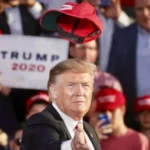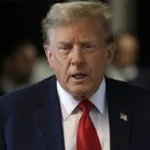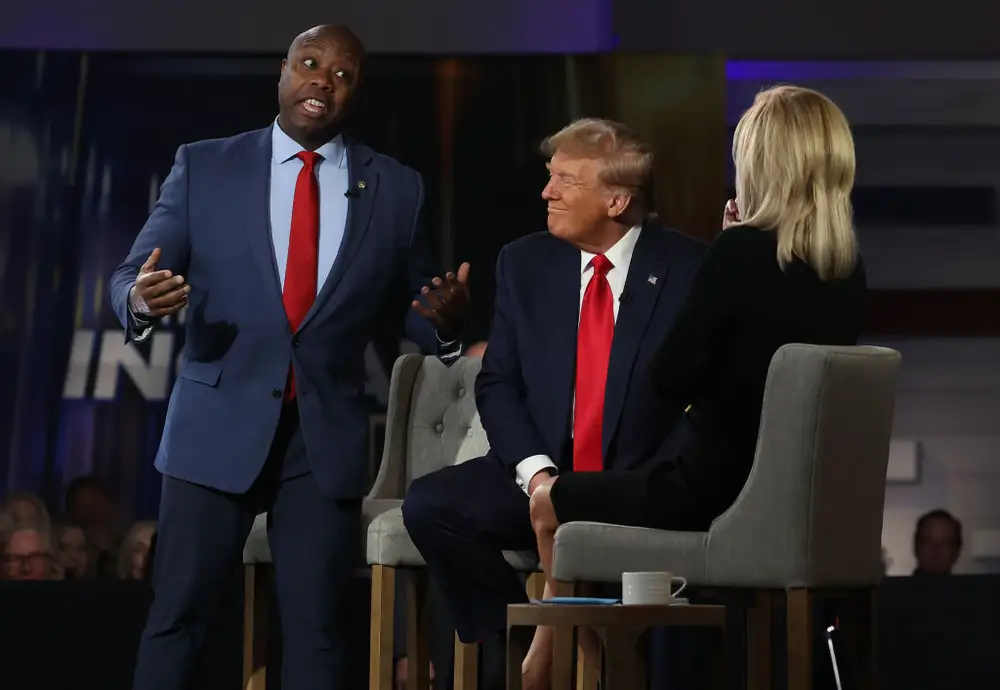- Donald Trump is entering the home stretch of his vice presidential selection process.
- He could have a new running mate as soon as June.
- Trump has a lot of factors to weigh in his decision.
Former President Donald Trump is entering the final stretch in his vice presidential selection process.
There are now less than six months until Election Day. Republican delegates, including Trump’s family, will gather in Milwaukee in just over two months to formally hand him his third straight GOP presidential nomination.
Even if he wins in November, Trump will reenter office as a lame duck. It means his apprentice will have the inside track to replace him in 2028 — a fundamentally different reality than the one he faced in 2016.
Trump is no longer a political neophyte. As he recently told Time Magazine, the former president claims he knows what to do differently this time. He no longer needs a running mate to unite his party’s base. It’s his show. But as recent primary results illustrate, there is still a subsection of the Republican Party that isn’t thrilled by their choices.
A rematch between the two most recent men who have held the title of the oldest president in history is also sure to put a focus on their No. 2s.
So with that in mind, here’s Business Insider’s initial vice presidential power rankings. Like all good predictions, we’ll update it as it gets closer to happening to ensure greater accuracy.
If we’re wrong, just remember that offseason polls don’t matter. (Trust me, I’m a Nebraska fan.)
1. Sen. Tim Scott of South Carolina:
Scott has been on Trump’s shortlist from the beginning. He’s a former presidential candidate himself, a fact many recent vice presidential nominees share (though Trump ignored that in 2016). The 58-year-old has also shown a fundraising prowess that could be greatly appreciated given Trump’s at-times cash-strapped campaign. It helps that he has a relationship with Oracle co-founder Larry Ellison, who, according to CNBC, is pushing Scott to get picked.
Scott would also be a historic choice. He’s already the first Black Republican elected from the South since Reconstruction. Some Trump aides have urged the former president to balance out his 2024 ticket by picking a person of color.
Polls during Scott’s brief run show that GOP voters like him. He receives a similarly warm reception on Capitol Hill, though his bipartisan push for sweeping policing reform failed. He voted to certify the 2020 election, a fact he shares with the overwhelming majority of GOP senators, but recently was cagey when asked if he would accept the results this November.
That all being said, we’ve talked up Scott before. And he dropped out before the Iowa caucuses.
2. Gov. Doug Burgum of North Dakota
Burgum’s biggest moment in his brief presidential run was arguably when he injured his leg before a primary debate. Despite that inauspicious moment and a forgettable primary effort, he’s receiving serious consideration. Burgum’s momentum has surprised even his fellow home-state politicians. Sen. Kevin Cramer told Politico his governor deserved the spotlight but also summed up Burgum’s biggest drawbacks by pointing out he’s a “white male from a state with three electoral votes that haven’t gone to a Democrat since LBJ does not seem to bring a lot of electoral value to the ticket.”
Trump tried a Midwestern governor straight out of central casting who was supposed to outshine him. Unlike Pence, Burgum blazed a path in business before getting into politics. The North Dakotan sold his software company to Microsoft for over $1 billion in 2001. As CNBC pointed out, Burgum could write a massive check to Trump’s campaign.
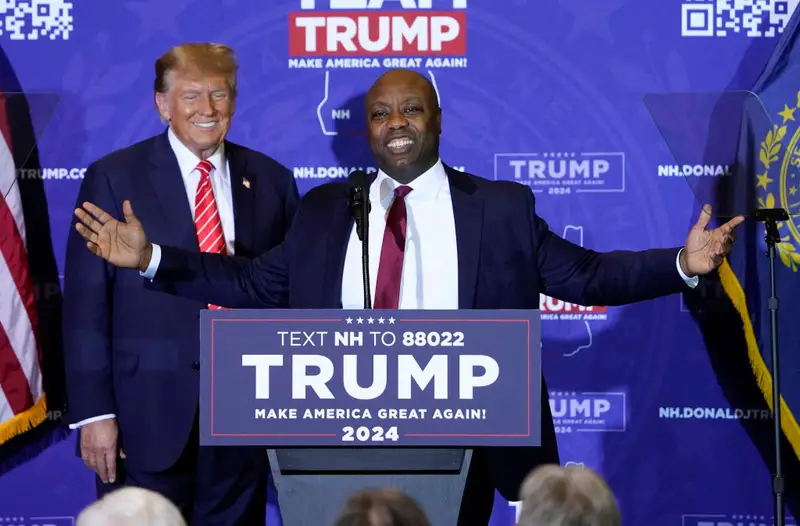
3. Sen. Marco Rubio of Florida
Rubio would be the most obvious choice for a Trump pick poised to carry the former president’s legacy forward in 2028. After all, the Floridian was once proclaimed the future of the Republican Party. He did vote to certify the 2020 election results but found ways other ways work with his former 2016 primary rival while in office. Rubio has also shown he’ll shift his views, most notably he was one of the main architects of the bipartisan, sweeping 2013 immigration legislation that would have offered undocumented immigrants a pathway to citizenship. Like many 2016 foes, Rubio is also on record hammering Trump — including his cringey mocking of the future president’s hand size (Rubio later apologized for that).
The biggest hurdle for Rubio isn’t likely anything in his past. Instead, he faces very real concerns about residing in the same state as Trump.
As Politifact explained, the Constitution has been interpreted not to allow electors from the same state to vote for a president and vice president who also reside in that state. That means a Trump-Rubio ticket could lose out on Florida’s 30 electoral votes, even if they won the state.
According to the Bulwark, Rubio would be willing to move but he might have to make his mind soon.
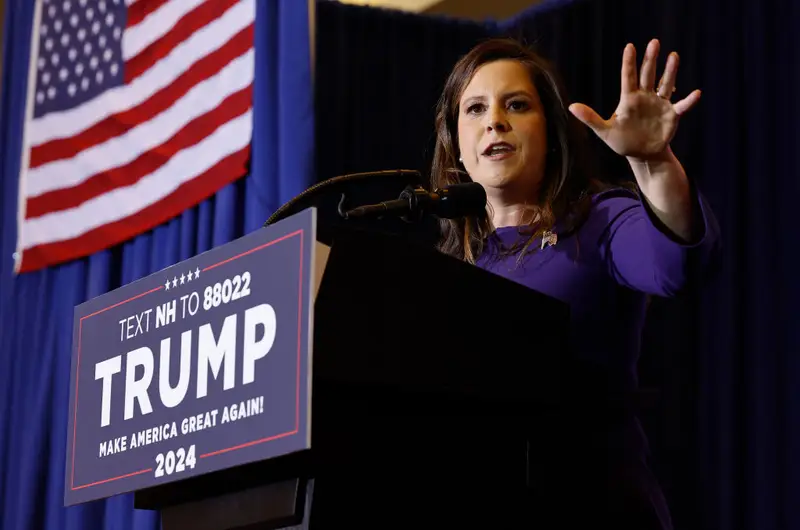
4. Rep. Elise Stefanik of New York
Stefanik has clearly staked her ground as a Trump ally. She was the first member of House leadership to have endorsed Trump for his 2024 run. She endeared herself to his political base for her defense of the president during his first impeachment trial. Stefanik garnered national attention recently for grilling college presidents over their handling of antisemitism. She was once more liberal than Rep. Liz Cheney of Wyoming, but her rise in the GOP has coincided with a reinvention as a Trump-aligned Republican.
Stefanik hails from a state that is never going to back Trump. But scores of studies show that the home-state boosts for vice presidents isn’t all it’s cracked up to be. Perhaps it’s not surprising then that none of the top-tier names on Trump’s list hail from a current swing state. Still, Stefanik’s selection would be historic. She would be only the fourth woman to share a major party’s ticket. Republicans, especially Trump, have struggled with suburban women, but it’s not clear that tapping a woman would automatically cure that problem.
Biden may also delight in the selection of a House GOP leader. The president has repeatedly called attention to the drama that has gripped the lower chamber. Voters are likely to care more about the economy than Speaker Mike Johnson’s job status, but the level of in-fighting in the GOP is so bad that multiple sitting lawmakers have quit their jobs early.
5. Sen. JD Vance of Ohio
Vance has used his powerful perch to push the GOP more in Trump’s direction. He serves in a chamber that, unlike the House, is more likely to defy the former president. Despite just joining the Senate last year, the 39-year-old has been repeatedly mentioned as a potential running mate.
As a former venture capitalist, Vance has ties to the more conservative Silicon Valley leaders who could help buck up Trump’s fundraising. Like many on this list, Vance has questioned the results of the 2020 election. He’s gone even further recently by suggesting that former Vice President Mike Pence has overplayed the extent to which his life was under threat during the Capitol riot.
The rest of the pack
6. Rep. Byron Donalds of Florida: Donalds has risen rapidly in the eyes of many of his House GOP colleagues. He has close relationships with the House conservatives that forced former Speaker Kevin McCarthy’s historic ouster and have frustrated Speaker Mike Johnson, but he hasn’t participated in either effort to challenge the men directly.
7. Entrepreneur Vivek Ramaswamy: Ramaswamy staked out the most pro-Trump territory of any GOP presidential hopeful. So much so that it got him noticed. Ramaswamy shares Trump’s love of sparing with the media. He also tried to act like the former president on the debate stage, though his fellow candidates’ patience grew thin as time wore on. Having never held elected office, the Roivant Sciences founder would have one of the least conventional resumes of any recent major party vice presidential nominee. He would also be a historic pick.
8. Former Rep. Tulsi Gabbard of Hawaii: Gabbard has reinvented herself since briefly running for the 2020 Democratic presidential nomination. Gabbard made a major show of leaving her party over “wokeness.” Trump’s interest is serious enough that she reportedly brushed off RFK. Jr’s entreaties to become his vice presidential nominee. Still, there’s already one former Democrat on any Trump ticket. Is there really room for another one?
9. Former HUD Secretary Ben Carson: Trump still has close feelings for his former Cabinet official. Carson also hails from the key state of Michigan. He’s also still an avowed supporter of a national abortion ban, a topic Trump has tried everything in his power to avoid.
10. A wild card like Gov. Glenn Youngkin of Virginia: Youngkin skipped out on a late 2024 run to focus on state legislative elections. The Republican was supposed to show how the GOP can talk about abortion in competitive areas. It didn’t work out. Still, he has the personal wealth and connections to seriously help a Trump campaign. Plus, per CNBC, Rupert Murdoch likes him.

